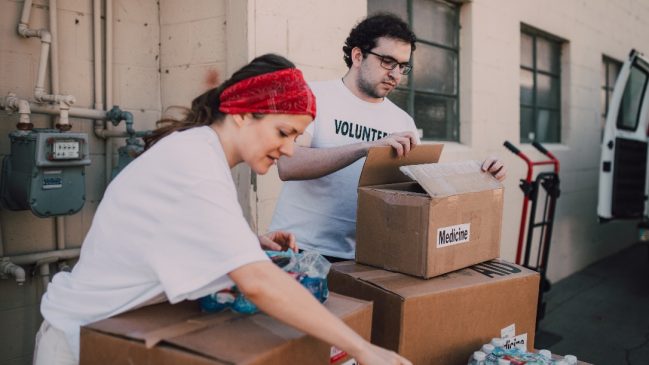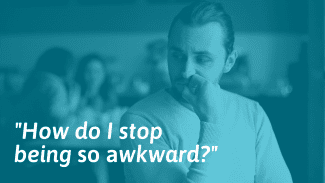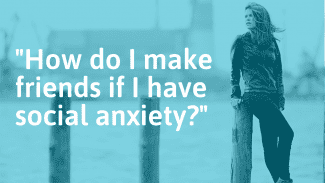As a socially anxious introvert, I can attest to the benefits of serving others through volunteering in my community.
A volunteer job doesn’t need to require stepping into a busy room full of 100 people at a school or hospital. Instead, my volunteer service consists of quiet one-on-one visits with isolated older adults either by phone or in person. This kind of work is much more suitable and agreeable for introverts.
Indeed, any single act of kindness shared with others has always been a sure bet for bringing me out of my shell. When I help elders or people with disabilities who are more isolated and lonelier than I am, I feel my nervousness and self-consciousness disappear. My social awkwardness loses its grip on me when I’m focused on helping someone else rather than myself or my social performance. Unlike showing up at a job interview, business meeting, or speaking engagement, working as a volunteer with people in need takes the spotlight away from being measured or judged. In a helping role where I am giving my free time, I feel truly liberated in my mission to serve.
Social scientists have an apt name for stressful social situations where we need to perform and would likely be judged or evaluated. The “social-evaluative threat” (SET) is particularly threatening for people with social anxiety as stress hormones such as cortisol rapidly increase. Any time we are in evaluative situations where we are judged by others, we face this social-evaluative threat and endure a sudden rush of stress hormones that increase anxiety. It’s understandable that high-performance events such as public speaking or job interviews would be almost unbearable. Yet when we are in situations where we are offering casual acts of kindness or nurturing others (to small children, pets, vulnerable or frail people) we tend to feel less threatened or judged by others. Helping others and sharing simple acts of kindness does not pose such a social-evaluative threat, but instead, calms and soothes us. Neuroscientists have studied the warm glow of doing good that makes us feel good.
“Kindness may help socially anxious people,” says Dr. Lynn Alden, a psychology professor at the University of British Columbia. She and her colleagues conducted a study with 115 undergraduate students who had reported high levels of social anxiety. She found that “acts of kindness may help to counter the socially anxious person’s fear of negative evaluation by promoting more positive perceptions and expectations of how other people will respond.”
Dr. Alden examined ways to engage socially anxious students who tended to avoid helping others or volunteering. “We found that any kind act appeared to have the same benefit, even small gestures like opening a door for someone or saying ‘thanks’ to the bus driver. Kindness didn’t need to be face-to-face. For example, kind acts could include donating to a charity or putting a quarter in someone’s parking meter.” Essentially, participating in small acts of kindness could go a long way in encouraging socially anxious students to enjoy the spirit of giving when “doing good makes us feel good.”
If we think of the times we’ve stepped up or showed up for someone in need, we might consider how we forgot our anxiety—at least for a moment—in our caring response to that person. When we’re in the act of kindly focusing on someone else’s needs we “get ourselves out of the way,” or “get out of our head” to do whatever we can to make a difference in someone’s day. Ironically, our social confidence grows when we’re not caring about our social performance but rather simply caring about someone else. In the field of social psychology, a term has evolved over the past two decades that sums up the science of helping others: prosocial behavior. This term can be broadly defined as voluntary behavior that benefits others.
In another more recent study of prosocial behavior with students at University of British Columbia, researchers found that “the inclusion of a kindness assignment in an undergraduate course impacted student perceptions of themselves, their peers and their campus.” Giving to others with small acts of kindness “can go a long way towards bolstering student health and wellness.”
Prosocial behaviors such as volunteering and helping others are tried-and-tested ways to alleviate loneliness, isolation, depression—and certainly social anxiety—as research has shown over the past few years. Quite honestly, as a rehabilitation consultant and educator, I’ve been heartened by the encouraging research that shows us how helping others lowers anxiety, especially in times of uncertainty. Even during the pandemic, I’ve witnessed many clients with social anxiety find purpose, meaning, and a sense of belonging in their volunteer jobs such as working at Habitat for Humanity, the YMCA, or their local senior center.
Here are more findings that highlight how helping others promotes wellbeing as well as lowers social anxiety:
- Happiness comes from trying to make others feel good, rather than oneself. Instead of focusing on self-serving goals, “switching one’s concentration from the self to other people could be a more effective way to achieve personal happiness.”[1]
- People who volunteer regularly experience a boost in their mental health. A study in the United Kingdom published in 2020 in the Journal of Happiness Studies examined 70,000 research participants.
- Giving to others is a way to buffer stress as well as build resilience. A study of more than 800 people in Detroit reports that volunteering acts as a buffer against the negative effects of stressful life events such as chronic illness, divorce, death of a loved one, relocation, or financial distress.
- Volunteering helps us break out of loneliness and build a sense of community. Volunteering and kindness toward others can improve your health, ease feelings of loneliness and broaden our social networks,” states New York Times wellness reporter Christina Caron, in her article.
Here are 5 volunteer suggestions for introverts and socially anxious people:
- Work to protect and care for animals, birds, or natural habitats (environmental activism, animal activism, conservation, shelters, training therapy animals)
- Serve arts organizations (help with projects, concerts, galleries, set up events, promote fellow artists in associations and fellowships)
- Serve as an advocate for a cause you believe in (human rights, advocacy for people with disabilities, rights for Native Americans, ending violence)
- Serve older adults, teens or children as a volunteer mentor, companion, tutor (one-on-one tutoring or mentoring rather than groups)
- Help your local food pantry or make deliveries
Popular Volunteer Job Websites:







